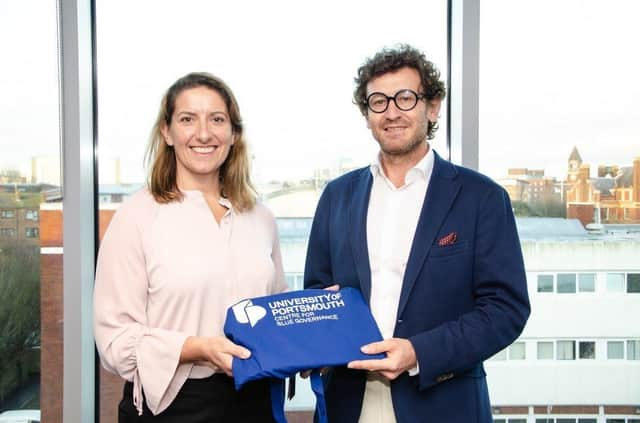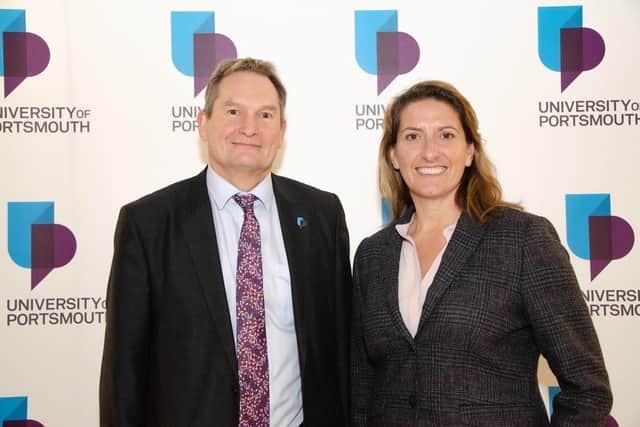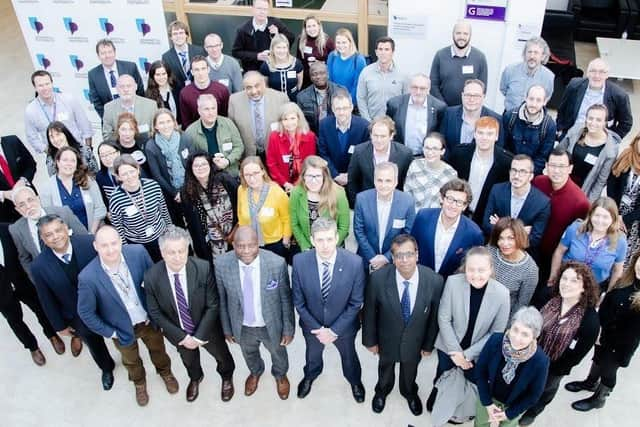University of Portsmouth launches centre to become global leader on sustainable marine ecosystem management


The Centre for Blue Governance was opened on Thursday, February 13 with a day of workshops, seminars and speeches. The launch was attended by scientists from some of the world’s most influential organisations including the United Nations (UN), UNESCO, Food and Agricultural Organisation, World Ocean Council and Commonwealth Secretariat.
Director of the centre, professor Pierre Failler, said: ‘It’s impossible to do things in isolation. The aim of the centre is to create synergies in which people are working together sustainably.’
Advertisement
Hide AdAdvertisement
Hide AdProfessor of biology, Alex Ford, added: ‘The centre brings together experts in science and economics to hopefully get good governance of our marine and freshwater ecosystems. We will cover a range of issues including fisheries, mining and climate change.’


The launch was attended by sailing legend, Dee Caffari MBE, the first woman to sail single-handed and non-stop around the world in both directions. Dee said: ‘I was extremely proud to be part of the official launch of the Centre for Blue Governance. We all now know the issues facing our planet and that action needs to be taken to protect the environment.
‘Both marine and freshwater environments are under extreme pressure with an ever-increasing human population. The research that the centre will carry out over the next decade will be crucial in identifying priorities and developing solutions for generations to come.’
Both Professor Ford and Professor Failler are proud that Portsmouth has been chosen to lead on the global initiative.
Advertisement
Hide AdAdvertisement
Hide Ad

Professor Ford said: ‘The University of Portsmouth has a rich 80-year history in marine biology as well as environmental economics. Finding a centre which can marry those two skill sets is very powerful in terms of meeting the United Nations (UN) sustainability goals.’
The UN has recently proclaimed a ‘Decade of Ocean Science for Sustainable Development’ to support efforts to reverse the cycle of decline in ocean health. While specifics have not been revealed Professor Failler said the event was successful in ‘organising a framework of strategies to help meet this aim’.
As well as facilitating a meeting point for global policy, the university will continue to play a role in international research projects which include looking at the impact of over-fishing and climate change in places such as Bangladesh, Mauritania and the Caribbean.
However, for Professor Ford, projects being carried out closer to home in the Solent are equally as important.
Advertisement
Hide AdAdvertisement
Hide Ad‘We are currently have on going initiatives to restore our oyster beds, sea grass and kelp forests which at one time were prevalent in our waters,’ he said. ‘However, due to issues such as pollution, over-fishing and invasive species this is no longer the case.’
Comment Guidelines
National World encourages reader discussion on our stories. User feedback, insights and back-and-forth exchanges add a rich layer of context to reporting. Please review our Community Guidelines before commenting.
